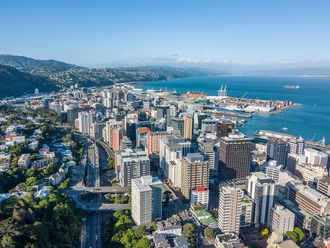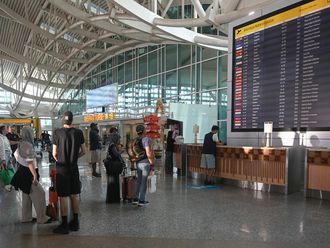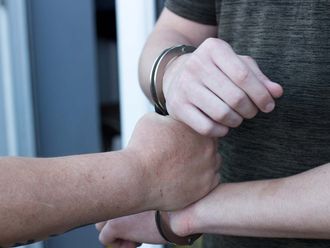Lagos: The details being reported seemed outlandish: a supposed graft-busting legislator stuffing bribe money under his hat because he had already filled his pockets, an oil baron recording the transaction.
The truth was anybody’s guess, but what was clear was that this was no run-of-the-mill bribery story in Nigeria — and some suspected it amounted to elaborate stagecraft to scuttle a major corruption probe.
“But there is a larger issue involved in this,” said Clement Nwankwo of the Policy and Legal Advocacy Centre watchdog group, “which is really the national budget being stolen and the president has failed to act on it”.
What remains at stake as the scandal continues to unfold is many people’s hopes for change in Africa’s biggest oil producer, where the public purse has repeatedly been raided to pay for monumental levels of graft.
The story was set in motion in April, when an explosive parliamentary report declared that Nigeria had lost an eye-popping $6.8 billion (Dh25 billion) between 2009 and 2011 through a corruption-riddled fuel subsidy programme.
Uncharacteristically here, the report named names and sketched out details of what had long been suspected, describing gross overpayments and wilful disregard for regulations in a programme intended to keep petrol prices low.
Nigerian authorities pledged to prosecute where wrongdoing could be proved — and while many remained sceptical, there were glimmers of hope.
But then came the alleged recording, and the money supposedly stuffed in the hat, and the police questioning of the legislator who was the lead author of the parliamentary report over an alleged $3 million bribe.
What has been alleged was that the legislator, Farouq Lawan, told the head of Zenon Oil, Femi Otedola, that for $3 million he would remove the firm’s name from the final report.
News reports alleged a video tape showed Lawan stuffing part of the bribe payment into his pockets. One leading paper, This Day, claimed the slender lawmaker put some of the cash under his hat when his pockets overflowed.
A flurry of investigations were announced, while the justice ministry vowed that fuel-subsidy fraudsters would still be prosecuted, despite the scandal encircling Lawan, who was detained by police for questioning for three days in June.
In early July, a prominent news channel broadcast what it was said were audio recordings in which Lawan and Otedola discussed paying the balance of the bribe.
Who made the recordings and why — not to mention whether they were in any way authentic — now appear central to uncovering what transpired.
“Of course, Mr Otedola did nothing wrong,” his lawyer Babajide Koku said.
Koku declined to discuss details of the case, saying he expected it to soon be in court. He did, however, insist that if something nefarious transpired, Lawan was to blame.
Amid reports in Nigerian papers that he is about to be arrested, Lawan has said little except that he is innocent.
He told AFP he could not comment on the case. His lawyer, Mike Ozekhome, also declined to comment, citing the likely court case.
Lawan reportedly told a closed-door hearing of the ethics committee in the House of Representatives that Otedola proposed the deal to save his company from being mentioned in the report and that he swiftly told the authorities.
It is not yet clear if any charges are to be filed, but anti-corruption activists said Lawan’s prospective downfall and the stains left on his report have been discouraging.
“Lawan was one of those that we put our eyes on because he was doing the right thing,” said Debo Adeniran, head of the Coalition Against Corrupt Leaders.
The bribery scandal has not completely derailed the bid to prosecute corruption in the subsidy programme.
Nigeria’s anti-graft agency, the Economic and Financial Crimes Commission (EFCC), has charged a group of companies and individuals, though activists say much more needs to be done.
The scandal surrounding Lawan will not hamper EFCC prosecutions, spokesman Wilson Uwujaren told AFP.
But the EFCC has previously struggled to secure convictions, and activists accustomed to seeing prominent graft cases fizzle out have their doubts.
“All of this,” said Adeniran, “doesn’t paint a glowing picture of a regime that is trying to crack down on the fuel subsidy scandal.”












